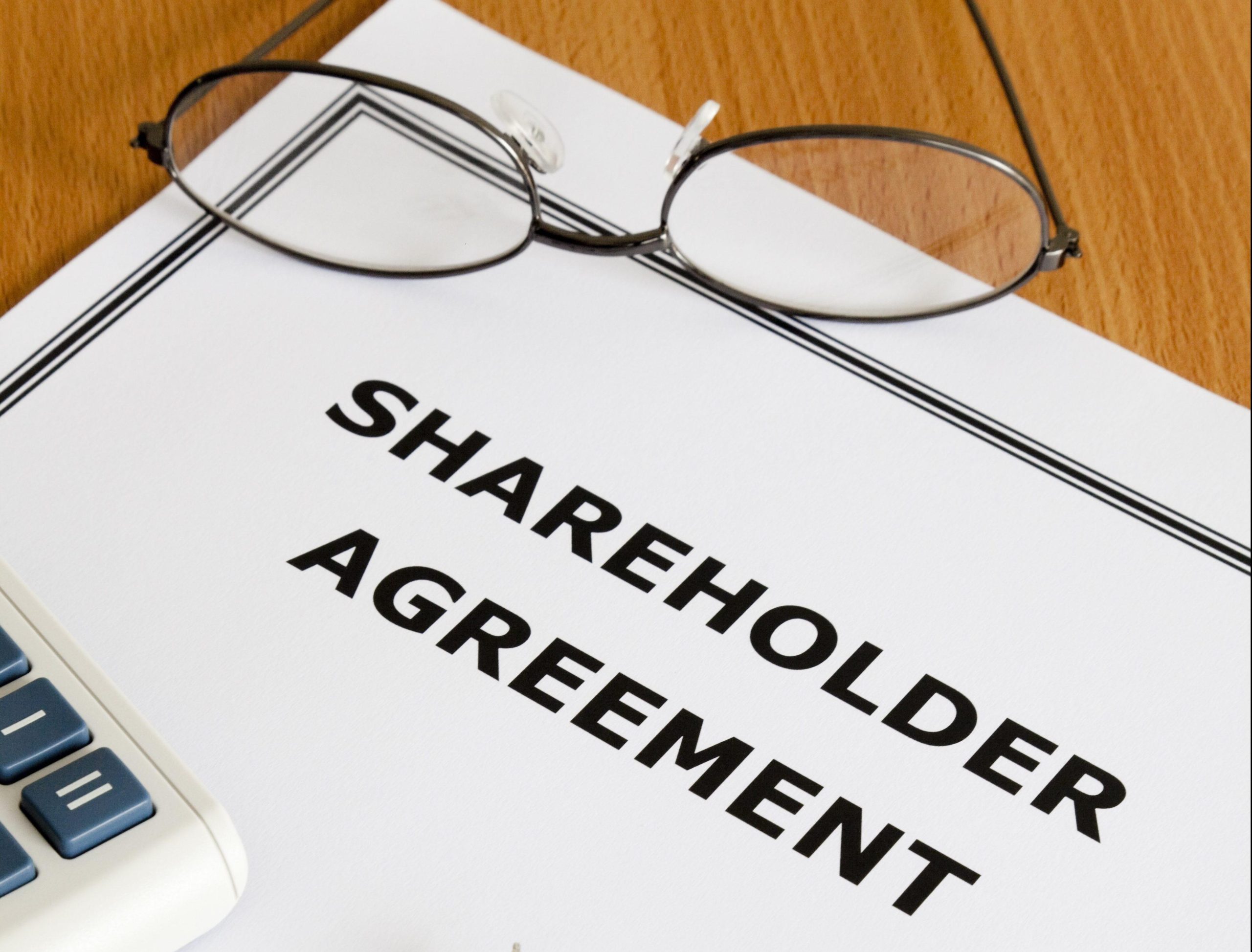A shareholders agreement is crucial for any company with multiple shareholders. This legal document sets out clear rules and guidelines for each shareholder’s rights, responsibilities, and contributions. It promotes clarity, cooperation, and the smooth operation of the business. Without a shareholders agreement, companies face a greater risk of misunderstandings and conflicts. Decisions may not align with each shareholder’s interests. Let’s explore the importance of having a shareholders agreement. We’ll cover the key provisions it should include and how it can support your company’s growth and stability.
What is a Shareholders Agreement?
A shareholders agreement is a binding legal contract that outlines the rights, obligations, and roles of shareholders within a company. Unlike a company’s constitution, which governs internal management and structure, a shareholders agreement provides detailed guidelines on each shareholder’s rights and duties. It outlines decision-making processes and how disputes are handled. Though not legally required in Australia, a shareholders agreement is highly recommended for businesses with multiple shareholders. It minimises conflicts and creates a more predictable, secure environment for all parties involved.
This agreement allows for greater flexibility than standard laws governing companies, letting shareholders define how they want the business to operate. By setting expectations and procedures, a shareholders agreement reduces uncertainty and helps keep the business on track. This clarity is particularly valuable in high-growth companies, where tensions and disagreements can quickly escalate if not properly managed.
Key Benefits of a Shareholders Agreement
A shareholders agreement offers many advantages that support the smooth operation and long-term stability of a company. Below are some of the main benefits:
Protection of Shareholder Interests
A shareholders agreement serves as a safeguard for all shareholders, protecting their individual rights. For minority shareholders, this may mean ensuring they have access to information and decision-making. For majority shareholders, it may involve setting mechanisms to prevent small shareholders from obstructing major decisions. By outlining these protections, a shareholders agreement can provide confidence to each shareholder. Their interests are safeguarded. This helps to maintain a cooperative atmosphere within the company.
Clear Definition of Rights and Obligations
In a company with multiple stakeholders, misunderstandings over roles and responsibilities are common. A shareholders agreement defines each shareholder’s role, outlining who is responsible for what and setting boundaries for each party’s authority. This prevents overlap, reduces misunderstandings, and ensures that each shareholder is clear on what they can and cannot do, which is especially valuable as the company grows and the roles evolve.
Flexibility Beyond Standard Laws
While Australian company law provides a framework for company management, a shareholders agreement allows the business to go beyond the default rules and create a custom approach. This flexibility enables shareholders to develop tailored procedures that fit the company’s unique needs. For example, shareholders can establish specific voting requirements for different types of decisions or designate certain rights to minority shareholders. By setting customised guidelines, the company can function more effectively, reducing potential legal hurdles or bureaucratic delays.
Reduced Potential for Conflict
By providing guidelines on how the company should be run and how decisions are made, a shareholders agreement helps prevent disputes before they arise. When shareholders know exactly what is expected of them, there’s less room for conflicts and misunderstandings. A clear agreement also provides mechanisms for resolving any issues that do come up, making it easier to address disputes before they impact the company’s operations.
Essential Provisions in a Shareholders Agreement
While every shareholders agreement is unique, there are several key provisions that are essential to most agreements. These sections cover various areas of business operation and ensure that all shareholders understand their roles and responsibilities.
Shareholder Contributions and Funding
A shareholders agreement should outline how each shareholder will contribute to the company. Contributions may include cash, assets, intellectual property, or services, depending on the nature of the business and each shareholder’s role. The agreement should specify whether shares will vest immediately or over a set period, allowing for flexibility in ownership structure. This provision is especially important in startups, where shareholders may invest different resources and the terms of ownership need to reflect these contributions.
It is also essential to establish guidelines for future funding. If the company needs additional capital, the agreement can specify whether existing shareholders have the first right to contribute funds before seeking external financing. This setup protects shareholders from dilution and ensures that they have a say in how the company’s finances are managed.
Director Appointment Rights
Director appointment rights are an important aspect of a shareholders agreement. They ensure that each shareholder has an appropriate level of representation on the company’s board. The agreement should specify which shareholders have the right to appoint directors. It should also outline the circumstances under which these rights might be lost. Additionally, the process for appointing or removing directors should be included. For example, a shareholder may lose their appointment rights if their shareholding falls below a certain percentage. This protects the company from having directors who no longer hold a significant stake.
Setting these guidelines helps balance power between shareholders, particularly in companies with both majority and minority shareholders. It ensures that the board represents the interests of the shareholders fairly and reduces the risk of disputes over board composition.
Decision-Making and Shareholder Obligations
How major decisions will be made within the company should be outlined in a shareholders agreement, including which decisions require a simple majority, a supermajority, or unanimous approval. By specifying the decision-making process, the interests of minority shareholders are protected from being overlooked on critical issues. For example, unanimous approval might be required for significant financial decisions, ensuring smaller shareholders are included in crucial discussions.
The agreement should also detail the responsibilities and commitments expected from each shareholder. By setting out these obligations, the company can ensure that each shareholder is clear on their role and avoids misunderstandings that could disrupt the business.
Dividend Distribution and Financing
Dividend distribution policies are essential for managing shareholder expectations regarding profit sharing. A shareholders agreement should outline when dividends can be paid, whether certain contributions must be repaid first, and how profits will be distributed among shareholders. Additionally, the agreement can establish guidelines for future funding, specifying when shareholders have the right to contribute additional funds before the company seeks outside investment.
This provision protects shareholders from dilution and provides clear guidelines on the company’s approach to financing, which is particularly important in high-growth industries where cash flow can vary.
Share Transfer Conditions
The agreement should set conditions for the transfer of shares, covering situations in which a shareholder can sell or transfer their ownership. Pre-emptive rights may be included in this section, giving existing shareholders the first right to purchase shares before they are offered to external parties. It may also contain “drag-along” and “tag-along” clauses, which protect both majority and minority shareholders when it comes to share sales.
In cases where shareholders want to exit, a well-defined transfer process helps ensure that their departure is smooth and does not disrupt the company’s operations. Clear guidelines around share transfers prevent unexpected ownership changes and provide stability for the business.
Exit Strategy
A shareholders agreement should establish an exit strategy, outlining how shareholders can sell or transfer their shares under specific circumstances. Common exit options include buyouts, listing on the stock exchange, or selling the business to a third party. By defining these strategies in advance, shareholders can avoid conflicts when the time comes to exit, and they will have a clear understanding of the valuation process for their shares.
Exit provisions are particularly useful in companies that expect significant growth or eventual acquisition. They ensure that shareholders have a way to capitalise on their investment while maintaining stability for the business.
Default Events and Consequences
The agreement should specify what constitutes a default by a shareholder and the consequences of default. For example, if a shareholder’s obligations are not fulfilled, a transfer of their shares may be required at a set value. Accountability is ensured, and disruptions caused by non-compliance are prevented to protect the company.
Deadlock and Dispute Resolution
Disputes are almost inevitable in any company with multiple shareholders. A shareholders agreement should include mechanisms for resolving deadlocks and disputes. This includes buy-sell options or “shotgun” provisions, where one party can set a price for their shares and the other party can either buy or sell at that price. By setting out these processes in advance, the agreement helps prevent lengthy and costly legal battles.
When Should You Establish a Shareholders Agreement?
It’s best to establish a shareholders agreement at the company’s inception, as this is when all shareholders are most likely to negotiate terms fairly. Delaying the agreement can weaken your bargaining position, especially if disputes arise. When each party’s roles and contributions are fresh, it is easier to establish fair terms that reflect the company’s goals and objectives.
Additional Tips for Your Shareholders Agreement
Creating a shareholders agreement requires careful consideration. Here are some tips to ensure you get it right:
- Seek Professional Advice: Consulting with a lawyer ensures that your agreement is comprehensive and legally sound.
- Regular Updates: As your company grows, review and update the agreement to reflect changes in ownership, roles, or objectives.
- Maintain Balance: Ensure that both minority and majority shareholders feel protected. A fair agreement creates a foundation for long-term success and collaboration.
Need Help?
If you have questions or need assistance with drafting a shareholders agreement, Allied Legal is here to help. Contact us today.





